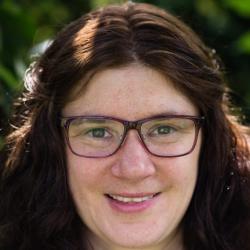Academic Visitor
Research Groups: International Health Systems, Health Systems Design
Email: kk371 @cam.ac.uk
NIHR Academic Clinical Lecturer
I studied medicine at the University of Cambridge. Before this I studied astrophysics with a specific interest in theoretical cosmology and obtained my PhD in 2006 from the University of Colorado. Having completed my training in anaesthesia I am currently working as an NIHR clinical lecturer and honorary senior clinical fellow in the University Division of Anaesthesia. My clinical interests are in vascular anaesthesia, peri-operative care and anaesthesia for major general surgery.
My research focuses on applying quantitative methods to perioperative pathways and perioperative care systems.
My current projects are:
Network analysis to investigate acute health systems: Emergency surgical pathway in CUH and emergency care system in the Midwest USA
We used data from the electronic care records database at Cambridge University Hospitals and Mayo Clinic Health Systems to apply network/systems analysis tools to better understand the current care system with its interconnectivity, bottlenecks, and potential areas of inefficiency. The aim of this improved understanding is to then explore pathways or protocols which may improve clinical outcomes.
Data-driven analysis of emergency surgical patients
This aspect of my projects involves using large data-sets of patient records to investigate the pathways of patients who attend for emergency surgery. We use standard modelling and clustering techniques but are also developing novel methods to represent these complex time-series and gain a better understanding of the health resource needs and the effects health system strain has.
Health-system modelling of trauma care in a global health setting
We used a combination of qualitative and quantitative data from Myanmar to simulate the neurotrauma care system in Yangon. Currently we are expanding this methodology to other pathways and contexts and have started working with groups in Uganda and the TOPAT group in the WHO.

